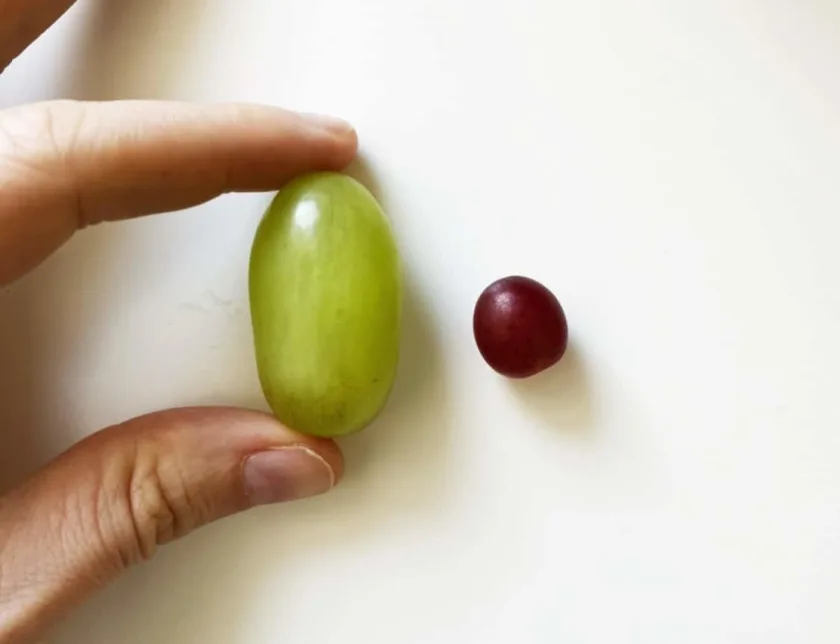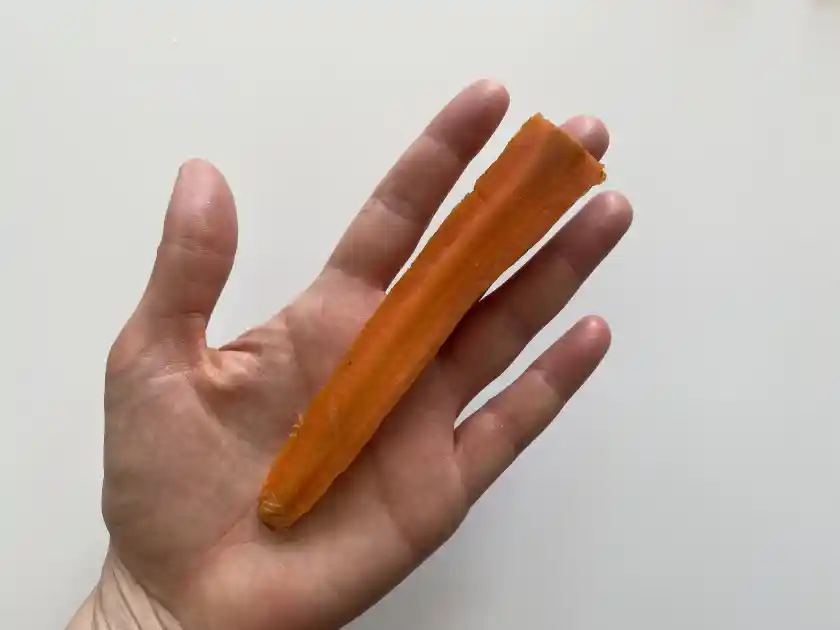Tips for Feeding Babies with Eczema

Eczema, particularly if severe, can make starting solids extremely challenging and uncomfortable. Check out these tips to minimize discomfort and maximize enjoyment during mealtime courtesy of Solid Starts allergist Dr. Sakina Bajowala and Solid Starts mom Mindy Lee. Plus, good news: Most infantile eczema significantly improves as baby grows older...so clear skin is likely in baby's future.
Consult a pediatric allergist
Babies with severe eczema are more likely to have food allergies than babies without eczema. Further, in consultation with a pediatric allergist, babies with eczema may benefit from the early introduction of food allergens—especially egg and peanut—to help prevent those food allergies from developing. For more on allergy prevention, see our Allergies page.
Avoid broad screening tests for food allergies
When working with a pediatric allergist, keep allergy testing focused on foods that you suspect of allergy. Focused testing on allergens that have already caused symptoms or are strongly associated with a known allergen is less likely to yield false positive results. Comparatively, broad screening test panels (both skin tests and blood tests) are fraught with false positive results and can result in unnecessary dietary restriction. Medically supervised oral food challenges are the gold standard for determining if a food is an allergenic trigger and which foods are safe to eat.


Apply barrier ointment before meals
Before you serve food to baby, apply a thin layer of barrier ointment—such as pure petroleum jelly or a plant-based oil/wax balm—to baby’s face. This layer of protection will help prevent contact rashes and serve as a barrier between acids and allergens in the food and baby’s sensitive skin.
Avoid wiping baby’s face during meals
While it may be tempting to wipe off sauce or yogurt from baby’s cheeks and chin, try not to wipe the skin repeatedly during meals. Scrubbing or repeatedly wiping food off baby’s face can irritate the skin and annoy baby, which can also lead to a negative association with the high chair and eating. Use a barrier ointment before meals as described above and wait until the meal is finished to clean up.


Use lukewarm water, not hot
When you wipe baby’s face after a meal, use lukewarm water—not hot—and, if needed, a gentle cleanser free of fragrance and dyes. Pat baby’s skin dry and apply a generous amount of hypoallergenic moisturizer.
Offer a bowl of cool water for sore fingers
If baby’s fingers are sore or irritated, have a bowl of cool water nearby during the meal so baby can dip their hands in and cool off the skin.

Teach baby to use utensils sooner than later
Many babies prefer to eat with their fingers because it’s easier, faster, and doesn’t require the fine motor skills needed for independent utensil use, but utensils help minimize skin contact with food. Model eating with utensils, pre-load forks, spoons, and chopsticks and pass over in the air to baby. Try using multiple utensils at mealtime so baby always has one to hold while you load the next one.
Keep track of flare ups
Keep a journal or use the Solid Starts app to track patterns. Doing so may help you better understand your child’s reactions to some foods.
Use the topical treatments prescribed
Follow your clinician's guidance when it comes to treating baby's eczema with topical moisturizers and treatments. Studies have shown that twice weekly application of a small amount of topical anti-inflammatory ointments to areas prone to eczema flare-ups can result in lower cumulative steroid exposure than as-needed application of these medications.


Watch out for acidic, spicy and juicy foods
During a flare up, minimize acidic foods like tomato or pineapple and save the cayenne pepper for another meal. During flare ups, direct contact with acidic and spicy foods can cause stinging or burning. The same goes for extra juicy or sticky foods.
Teach your child words for “itchy” and “sting”
Help your child learn words to match their experiences, things like “itchy” and “sting.” While the comprehension may take some time, it will help your soon-to-be toddler tell you when they are itchy or feel a flare-up coming.
Stop the meal if necessary
If mealtime is turning into a negative experience because your child is getting too itchy or their skin starts flaring uncomfortably, it’s okay to stop the meal and take a break. Don’t force things. You can always come back to the table later.
Don’t always blame the diet
Eczema may appear redder and more inflamed if baby overheats, cries, or rubs against something, so don't jump to blame baby's diet. While there will be foods that are more triggering or flare up your child’s eczema more than others, unless your medical professional has advised otherwise, don’t eliminate these foods from the child’s diet. Doing so can lead to unnecessary food restriction. In fact, avoiding the food might increase the risk of allergy development.
Looking for recipes for babies with eczema or foods that help eczema go away?
It's actually a bit more complicated than that... It is true that a minority of babies with moderate-severe eczema may actually have clinically significant food allergies. For these babies with difficult to control eczema that doesn't respond well to emollients and medications, targeted allergy testing to identify possible trigger foods might be helpful. However, for most babies with eczema, attempting to limit certain foods from the diet in an attempt to clear up the skin actually does more harm than good. Studies have shown that elimination diets in babies with eczema can increase the risk of developing life-threatening food allergy, because they remove the preventive benefits of sustained allergen exposure over time. Therefore, we would say the best recipe for eczema control in babies is equal parts barrier protection (with regular application of moisturizers), limiting contact irritants (friction, heat, fragrance, etc.), judicious application of topical anti-inflammatory medications, and dietary diversity. Mix well, and serve often!
Consider seeking feeding support
If things are challenging or you suspect that baby may develop a negative association with eating, ask your health care provider for a referral to a feeding therapist to support you in your journey.
More Safety Pages
Expert Tips Delivered to Your Inbox
Sign up for weekly tips, recipes and more!
The content offered on SolidStarts.com is for informational purposes only. Solidstarts is not engaged in rendering professional advice, whether medical or otherwise, to individual users or their children or families. No content on this site, regardless of date, should ever be used as a substitute for direct medical advice from your doctor or your medical or health professional, nutritionist, or expert in pediatric feeding and eating. By accessing the content on SolidStarts.com, you acknowledge and agree that you are accepting the responsibility for your child’s health and well-being. In return for providing you with an array of content “baby-led weaning” information, you waive any claims that you or your child may have as a result of utilizing the content on SolidStarts.com.



